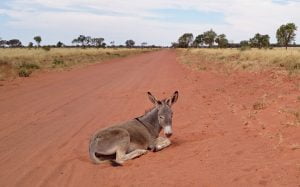 This is one of the times of year that we often see cases of colic in horses. Colic simply means abdominal pain. Horses with colic can show a variety of symptoms, ranging from pawing at the ground and watching their flank, to lathering up in a sweat and throwing themselves upon the ground, rolling violently.
This is one of the times of year that we often see cases of colic in horses. Colic simply means abdominal pain. Horses with colic can show a variety of symptoms, ranging from pawing at the ground and watching their flank, to lathering up in a sweat and throwing themselves upon the ground, rolling violently.
There are many different causes of colic, which is why it is always best to have a colicy horse examined by a vet as soon as possible in order to differentiate a mild spasmodic colic from a life threatening twisted gut. One of the reasons we seen an increase in colic around now is that the fresh shoots of green grass after the rain are quite attractive to horses, and sometimes they can end up eating a significant amount of dirt and sand along with the new grass. Some horses may ingest large amounts of sand and never colic. But other horses can develop a spasmodic discomfort, diarrhea or weight loss from the irritation caused by the sand passing through the intestine. Sand may also build up in the gut over time, slowing digestion and causing impaction of the intestine.
The best way to prevent sand colic is to ensure your horse doesn’t ingest too much sand or dirt in the first place. Use hay nets or racks, and place rubber matting under them to catch the hay that inevitably falls out. Where possible, avoid keeping horses in overgrazed paddocks, and always ensure clean fresh water is always available.
If your horse does suffer from episodes of sand colic, feeding a high fibre diet can be helpful to move the sand through the intestine. Free access to large amounts of grass hay works best. If this isn’t possible, psyllium husk added to feed may be useful – around a cup a day for a week, and then repeat a month later. Older remedies such as feeding wheat bran and drenching with mineral oil have been shown to be ineffective at removing sand.
